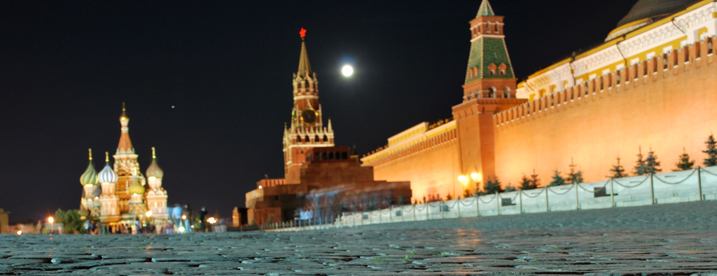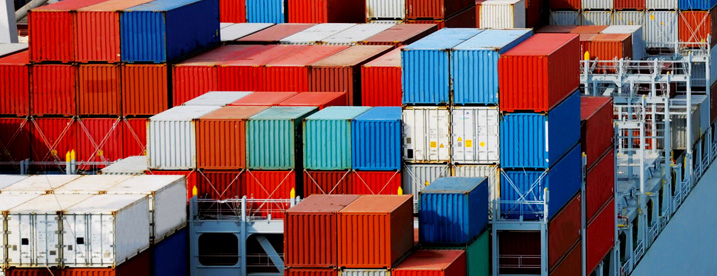By E.J. Fagan, May 29, 2014

In his official first act after winning the biggest democratic election in world history, Indian Prime Minister Narendra Modi announced the formation of a Special Investigative Team (SIT) to probe illicit financial flows, or ‘black money’ as they are commonly referred to in India.
Illicit financial outflows are a massive problem for India. GFI research finds that India lost $343.9 billion to illicit outflows from 2002-2011:
By Brian LeBlanc, May 23, 2014

It can be tough to impose economic sanctions against Russian citizens if you can’t find their money. Russia’s very complex relationship with tax havens could make this more difficult.
It is also tough to try to pinpoint exactly how much Russian money is being held in tax havens due to the fact that a lot of it isn’t reported to Russian officials/international organizations like the IMF (that’s the whole point of hiding your money in a tax haven).
The amount that is actually reported is pretty jaw-dropping. Approximately 61% of Russia’s $403 billion in outward Foreign Direct Investment (FDI) is held in tax havens:
Just to be clear, FDI is any amount of investment in a entity which gives the investor some control over that entity’s operations. So, if a Russian billionaire incorporates an entity in Cyprus (often these entities in tax havens are just bogus “shell” entities), and invests $1,000,000 into the entity, that will show up in the FDI statistics.
By E.J. Fagan, May 22, 2014
Welcome to the new gfintegrity.org! After seven long years, we have finally redesigned our website, with the help of some fantastic web designers and engineers. We are still working out the bugs and generating content, and would appreciate your feedback. To tell us what you think, Tweet us at @GFI_Tweets.
Our goal for gfintegrity.org is to create an engine for education and advocacy on illicit financial flows. Nearly a trillion dollars left developing countries last year illegally, resulting in tremendous amounts of economic and social damage. GFI believes that this represents the most harmful economic condition affecting the world’s poor. We hope this website helps us not only make that point, but help guide people to effective, pragmatic policy solutions to curtail illicit flows.
One way we’re doing that is using new graphs and visual aids from Datawrapper, which you will find throughout the site:
All of these graphs are interactive, and the data used to create them is embedded along with the graphics themselves.
By E.J. Fagan, May 1, 2014
Every year, more capital is transferred out of Africa than into the continent. This is despite billions of dollars of foreign aid, natural resource exports, and foreign direct investment:
By Dev Kar, June 20, 2011

Massive capital flight from the weaker Eurozone economies, not envisaged before the creation of the Eurozone, are putting further pressure on the union Cross-posted from the blog of the Task Force on Financial Integrity and Economic Development. One...
By Dev Kar, January 20, 2011

New Global Financial Integrity Report Reveals Russia is Losing US$50 Billion Annually in Illicit Outflows
Recent news from Russia confirms that corruption is a serious issue that, unless curbed, can prevent the country from emerging as a global economic powerhouse. Corruption in Russia has been a hangover from the Soviet Union days. It is just that the forces of globalization have provided old hands and the up-and-coming younger generation of Russians with unprecedented opportunities to make money under the table. Of course, the exponential increase in Russia’s natural resource exports (such as petroleum products and natural gas) has not helped matters as far as overall governance is concerned. There is simply too much money in the hands of the too few.
By Dev Kar, August 16, 2010
Illicit Financial Inflows and Illicit Financial Outflows Must Be Added Together in order to Accurately Measure the Adverse Impact of these Flows on Developing Economies, Explains Dr. Dev Kar
Capital flight, in its broadest sense, consists of the cross-border transfer of licit as well as illicit capital. The licit component of capital flight basically consists of short-term capital movements initiated by the private sector. This portion of capital flight arises as a result of private investors’ portfolio decisions in response to interest rate differentials, changes in tax policy, expectations of exchange rate depreciation, and other macroeconomic conditions. In contrast, illegal capital flight or illicit financial flows are intended to disappear from any record in the country of origin, and earnings on the stock of illegal capital outside that country does not normally return. Of late, there has been a transition, from the term illegal capital flight to the term “illicit financial flows” in documents of the United Nations and other multilateral institutions. Illicit money is money that is illegally earned, transferred, or utilized. Somewhere at its origin, movement, or use, the money broke laws and hence it is considered illicit. There is another reason for the change in terminology. While the term capital flight tends to place the onus of curtailing the problem upon the economic or governance problems in developing countries, illicit financial flows sees the transfer as a two-way street where the poor countries generate the flows while the developed world facilitates their absorption.

Global Financial Integrity Lead Economist Dev Kar Examines the Role of Illicit Financial Flows in the Greek Debt Crisis. IFFs Cost Greece an Estimated US$160 Billion over the Last Decade
Greece has been in the news a lot lately and as we all know, it has not been good news. By all accounts, the austerity measures being imposed on the population as a condition for bailing Greece out of the financial crisis, is severe. As Walter Mead points out in a recent blog, investors are worried that the Greeks may not stand for them. He rightly notes that ordinary Greeks feel that the rich should pay the costs of the economic crisis and not them. They are right. According to an article in the Washington Post (Is austerity a Greek myth? By David Ignatius, May 3, 2010), Prime Minister Papandreou admits that corruption now robs the Greek economy by US$20-30 billion and “graft” (probably meaning bribery and kickbacks) accounts for some 8-12 percent of GDP. If, as I suspect, the Prime Minister is talking of graft and corruption as separate components, the size of Greece’s underground works out to some 18-21 percent of GDP. The result still falls short of the 25-30 percent of GDP estimated by most economists.




